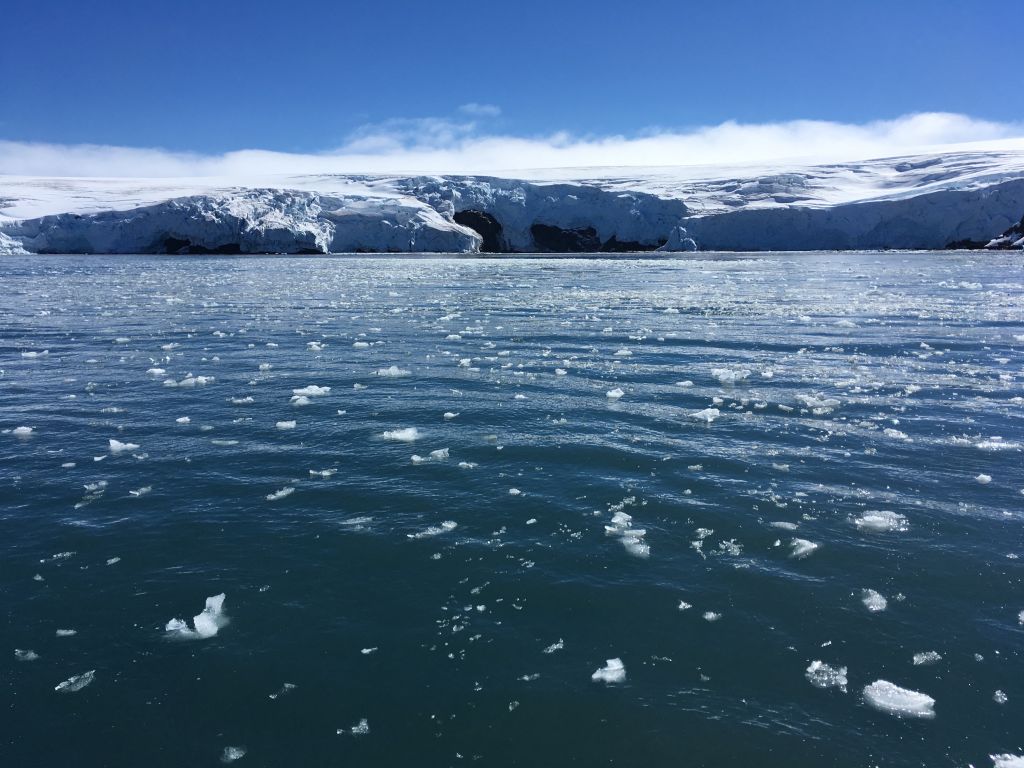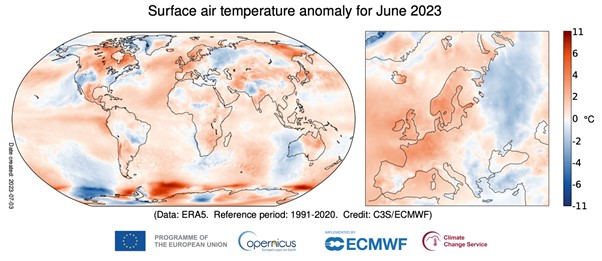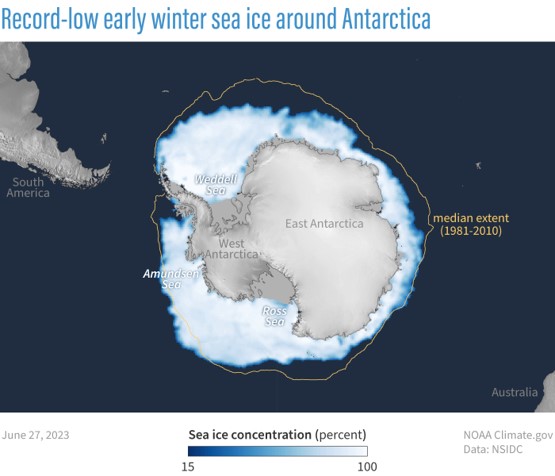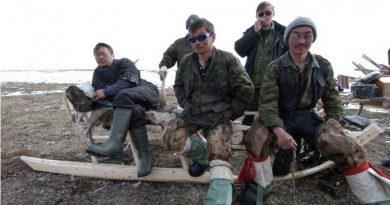Hottest week on record ‘worrying news for planet’ says WMO

Last week was the hottest on record according to preliminary data, says the World Meteorological Organization.
The measurements, along with a slew of other data including the hottest June on record, unusually high sea surface temperatures and exceptional sea ice loss at the South Pole should be a wake up call for the international community, the UN body said.
“The exceptional warmth in June and at the start of July occurred at the onset of the development of El Niño, which is expected to further fuel the heat both on land and in the oceans and lead to more extreme temperatures and marine heatwaves,” Christopher Hewitt, the WMO Director of Climate Services, said in a statement.
“We are in uncharted territory and we can expect more records to fall as El Niño develops further and these impacts will extend into 2024,” he said. “This is worrying news for the planet.”
The WMO said last week’s temperature readings come from Japanese data that still needs to be confirmed, but that it mirrors preliminary data from the European Union’s Copernicus Climate Change Service.
Average Global Temperature on July 7: 17.24 C
Previous Record: 16.94 C on August 16, 2016
Source: World Meteorological Organization
“According to various datasets from our partners in different parts of the world, the first week of July set a new record in terms of daily temperatures,” Omar Baddour, chief of climate monitoring at WMO said.
“The WMO and wider scientific community are closely watching these dramatic changes in different components of the climate system, and sea surface temperatures.”

According to the Copernicus data, parts of Canada, along with Asia, eastern Australia, Mexico and the U.S. all experienced record June temperatures.
The western parts of Australia, Russia and the U.S. all experienced a cooler June than usual.
Record high sea surface temperatures
May and June also saw record high global sea surface temperatures, especially in the North Atlantic.
“They are much higher than anything the models predicted, ” Michael Sparrow, head of WMO’s World Climate Research Department, said. “This will have a knock on effect on ecosystems and fisheries and on our weather.
“The North Atlantic is one of the key drivers of extreme weather. With the warming of the Atlantic there is an increasing likelihood of more hurricanes and tropical cyclones. North Atlantic sea surface temperature is associated with heavy rain or drought in West Africa.”
Record low sea ice extent in Antarctic
Arctic sea ice extent fell below average in June, but was significantly higher than it had been in the month over the last eight years.
But when it came to the Antarctic, the data was dramatic.

The sea ice extent there was 17 per cent below average in June, the lowest extent for the month since satellite observations have been collecting data, the WMO said.
There was almost 1.2 million km2 of sea ice loss in Antarctica this June, compared to the previous 2022 record. But when June 2023 was compared with the long-term average since satellite readings have been taken, there was 2.6 million km2 of sea ice loss, the WMO said.
“That is a really dramatic drop in the sea ice extent in Antarctica,” Baddour said.
Comments, tips or story ideas? Contact Eilís at eilis.quinn(at)cbc.ca
Related stories from around the North:
Canada: Climate change affecting composition of forests in Yukon, Canada, study finds, CBC News
Finland: Unusually warm April weather, sunshine records in northern Finland, Eye on the Arctic
Greenland: COP27— Indigenous knowledge must be included in policy making say Inuit leaders, Eye on the Arctic
Norway: Heatwave hit Europe’s Arctic coast, The Independent Barents Observer
Russia: Russian Arctic coal is looking for way out of sanctions, The Independent Barents Observer
Sweden: High risk of wildfires in many parts of Sweden, including North, Radio Sweden



